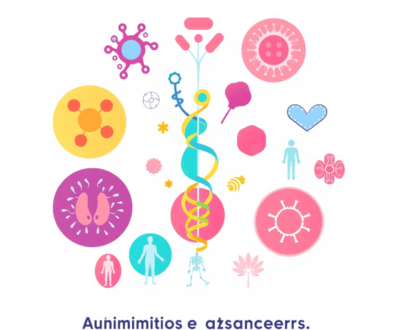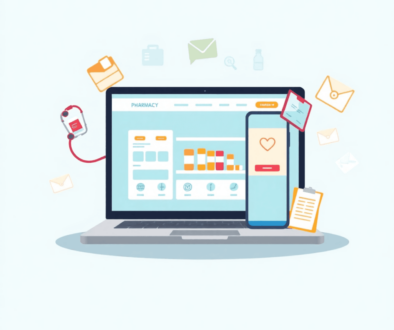Mental Health Medications: What Patients Should Know
Mental health medications are essential in treating mental disorders, helping individuals manage their conditions and improve their quality of life. However, these medications are not one-size-fits-all solutions. Healthcare providers play a critical role in creating personalized treatment plans that consider each patient’s unique needs and circumstances.
This article aims to provide valuable information about mental health medications that patients should know. From understanding how these medications work to exploring potential side effects and the importance of adherence, we will delve into various aspects of mental health medications. Our goal is to empower patients with knowledge so they can actively participate in their treatment journey and make informed decisions about their mental health care.
Understanding Mental Health Medications
Psychiatric medications work by adjusting the brain’s chemical messengers. These chemicals, such as serotonin and dopamine, help control mood, thoughts, and behavior. When they’re not working properly, symptoms like anxiety, depression, or mood swings can become prominent.
Using psychiatric medications along with psychotherapy creates a powerful combination. Medications often alleviate symptoms such as low energy, poor concentration, or overwhelming anxiety. This relief doesn’t just make life more manageable—it can open up opportunities for patients to actively participate in talk therapy. It’s similar to trying to have a meaningful conversation while dealing with a noisy child; that’s how therapy feels without symptom management.
Here’s how medication helps:
- Stabilizes mood so emotions don’t interfere with thinking
- Improves focus making cognitive-behavioral techniques more effective
- Reduces physical symptoms like restlessness or sleep disturbances
By calming the chaos in the brain, psychiatric medications create an environment where psychotherapy can be effective. Together, they form a powerful partnership—one addressing the biological aspect and the other targeting patterns of thought and behavior. Usually, neither approach is sufficient on its own; when combined, they enhance each other’s benefits and increase the likelihood of long-term recovery.
Factors Considered in Medication Prescription
Prescribing mental health medications isn’t a one-size-fits-all deal. Doctors dig into several critical pieces of your medical puzzle before deciding on the best medication:
- Clinical records: Past diagnoses, previous medication trials, and any side effects you’ve experienced help shape the treatment plan.
- Family history: If relatives have had success or adverse reactions to certain drugs, that info can guide choices. Genetics do play a role in how our brains respond to meds.
- Current symptoms and severity: This helps determine the urgency and intensity of treatment.
Predicting exactly how you’ll react to a specific medication remains tricky. The brain is a complex organ, and individual responses vary wildly. Some patients might feel relief within days, others may need weeks or months. Side effects add another layer of complexity—what’s mild for one person could be unbearable for another. Common side effects range from dry mouth and dizziness to mood swings or fatigue.
Doctors balance these factors carefully, often starting with medications proven effective for your diagnosis but staying ready to adjust based on your feedback. Think of it as fine-tuning an instrument—sometimes it takes a few tries before hitting the right note.
Different Types and Forms of Mental Health Medications
When it comes to mental health medications, one size definitely does not fit all. The pharmaceutical world offers a variety of forms tailored to fit patients’ lifestyles, preferences, and medical needs. Here’s a quick tour of the main players in the lineup:
1. Pills and Capsules
The classic go-to. Easy to carry, discreet, and familiar. Most psychiatric meds come in this form, making it the most common choice.
2. Injections
For those who find daily pills a pain (literally or figuratively), injections provide a longer-lasting option. Some are administered monthly or bi-monthly, ensuring steady medication levels without the daily hassle.
3. Patches
Like a nicotine patch but for mental health—these stick on your skin and release medication gradually. Great for people who dislike swallowing pills or have digestive issues.
4. Dissolvable Tablets
Pop one on your tongue, and it melts away—no water needed. Perfect for patients with difficulty swallowing or those always on the move.
Medication adherence can be tricky. Skipping doses or forgetting pills is common, especially when juggling busy downtown lives. Alternatives like injections or patches help keep treatment on track without turning your routine into a juggling act.
Choosing the right form isn’t just about convenience; it affects how well the medication works and how you feel during treatment. Keep an open conversation with your healthcare provider about what suits you best—they’re not just handing out prescriptions; they’re tailoring solutions.
Dosage Guidelines and Tapering Off Process for Mental Health Medications
Starting mental health medications often involves a strategy called low dose initiation. This means your healthcare provider will prescribe the smallest effective dose first. Why? Because it helps your body adjust to the new chemical balance without overwhelming it. Jumping straight into a high dose can lead to unpleasant side effects like dizziness, nausea, or increased anxiety—none of which make you want to keep taking your meds.
Once your body gets comfortable, the dose is gradually increased—sometimes over weeks or months—to reach a level that effectively manages symptoms. Think of this like easing into a cold pool instead of cannonballing in. The goal: maximize benefits while minimizing side effects.
When it comes time to stop a medication, tapering off under supervision is crucial. Abruptly quitting can cause withdrawal symptoms or a rebound of the original condition. Your doctor will design a slow, step-by-step reduction plan tailored to the medication type and your personal response. This controlled approach helps your brain chemistry adjust back to its natural state without throwing you for a loop.
Key points to remember:
- Starting low and going slow avoids unnecessary discomfort.
- Don’t stop or change doses without talking to your healthcare provider.
- A supervised taper respects both your body and mind during transitions.
Safe dosing and careful discontinuation are teamwork—your pharmacist and doctor have your back every step of the way.
The Duration of Medication Use: Short-Term vs. Long-Term Treatment Approaches for Mental Health Conditions
Mental health medications don’t come with a one-size-fits-all expiry date. How long someone needs to stay on meds depends on their unique situation, diagnosis, and response to treatment.
1. Short-Term Use
Short-term use often happens during acute episodes or crises—think severe anxiety attacks, major depressive episodes, or psychotic breaks. Meds help stabilize symptoms quickly so patients can regain control and start other therapies. This period might last weeks to a few months.
2. Long-Term Use
Long-term use becomes necessary when conditions are chronic but manageable, such as ongoing depression, bipolar disorder, or schizophrenia. Here, medications help maintain stability and prevent relapses. Patients might be on these meds for years with regular monitoring and dose adjustments.
3. Lifelong Treatment
Lifelong treatment applies in some cases where the mental health condition is persistent and disabling. Stopping meds abruptly or too soon risks relapse or worsening symptoms. Lifelong use aims at quality of life—allowing people to function optimally with minimal disruption from their illness.
Medication duration isn’t about “curing” but controlling symptoms and enabling patients to lead fulfilling lives. Regular check-ins with healthcare providers ensure treatment remains appropriate as life and conditions evolve.
Accessing Reliable Resources for Information on Mental Health Medications
Understanding mental health medications can be challenging, but finding trustworthy information is crucial. Here are two reliable sources to help you navigate this complex topic:
1. U.S. Food and Drug Administration (FDA)
The FDA’s website is the official source for medications approved in the U.S. It provides Medication Guides that contain detailed information about drug uses, risks, side effects, and safety warnings directly from the manufacturer. Their updates reflect new research and recalls—no rumors involved. You can find the FDA Medication Guides here to learn more about your prescription.
2. MedlinePlus Drug Information
MedlinePlus, powered by the National Library of Medicine, is an excellent resource for health information. It simplifies complex medical terms and offers clear explanations about mental health medications, dosing, interactions, and precautions. Visit MedlinePlus Drugs and Supplements for comprehensive details that empower you to make informed decisions about your treatment.
Additionally, understanding Mental Health Medications: What Patients Should Know can significantly enhance your ability to engage in meaningful discussions with your healthcare provider. By gathering knowledge from these trusted sources, you’re not just passively following instructions but actively participating in your wellness journey instead.
Conclusion
It’s important to stay informed about your treatment options, but working closely with your healthcare provider is crucial in finding the right medication plan for you.
If you’re looking for a convenient way to get your medications, consider Mister Pharmacist. We are a 5-star rated online pharmacy in Toronto, offering delivery services across the Greater Toronto Area.



